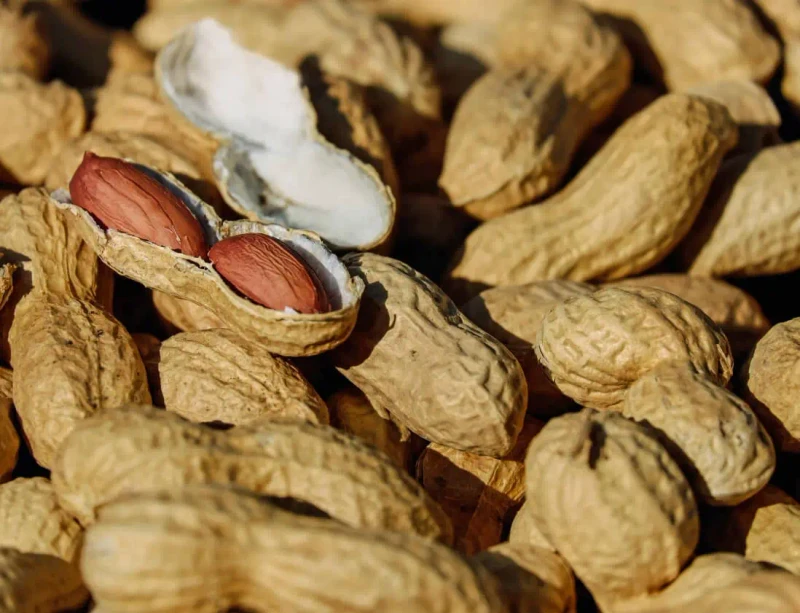Oils & Fats: Calories
| Food | Serving | Calories | Serving | Calories |
|---|---|---|---|---|
Almond Oil | 100 g | 898 Cal | 100 g | 45 Cal |
Avocado Oil | 100 g | 899 Cal | 100 g | 899 Cal |
Bacon Grease | 100 g | 897 Cal | 100 g | 45 Cal |
Beef Tallow | 100 g | 902 Cal | 100 g | 902 Cal |
Butter | 100 g | 754 Cal | 100 g | 75 Cal |
Canola Oil | 100 ml | 816 Cal | 100 ml | 82 Cal |
Chicken Fat | 100 g | 900 Cal | 100 g | 900 Cal |
Coconut Oil | 100 ml | 896 Cal | 100 ml | 134 Cal |
Cod Liver Oil | 100 ml | 898 Cal | 100 ml | 135 Cal |
Corn Oil | 100 ml | 900 Cal | 100 ml | 131 Cal |
Cottonseed Oil | 100 g | 884 Cal | 100 g | 884 Cal |
Duck Fat | 100 g | 929 Cal | 100 g | 93 Cal |
Extra Virgin Olive Oil | 100 ml | 900 Cal | 100 ml | 135 Cal |
Flaxseed Oil | 100 ml | 900 Cal | 100 ml | 135 Cal |
Flora Light | 100 g | 269 Cal | 100 g | 27 Cal |
Grapeseed Oil | 100 ml | 900 Cal | 100 ml | 90 Cal |
Lard | 100 g | 897 Cal | 100 g | 134 Cal |
Margarine | 100 g | 722 Cal | 100 g | 72 Cal |
Mustard Oil | 100 g | 884 Cal | 100 g | 133 Cal |
Olive Oil | 100 ml | 901 Cal | 100 ml | 135 Cal |
Palm Oil | 100 ml | 900 Cal | 100 ml | 135 Cal |
Peanut Oil | 100 ml | 901 Cal | 100 ml | 135 Cal |
Pumpkin Seed Oil | 100 ml | 900 Cal | 100 ml | 135 Cal |
Rape Seed Oil, Vegetable Oil | 100 ml | 900 Cal | 100 ml | 135 Cal |
Safflower Oil | 100 g | 884 Cal | 100 g | 884 Cal |
Salted Butter | 100 g | 701 Cal | 100 g | 70 Cal |
Sesame Oil | 100 ml | 901 Cal | 100 ml | 135 Cal |
Shortening | 100 g | 884 Cal | 100 g | 88 Cal |
Soy Oil | 100 ml | 900 Cal | 100 ml | 135 Cal |
Sunflower Butter | 100 g | 722 Cal | 100 g | 72 Cal |
Sunflower Oil | 100 ml | 900 Cal | 100 ml | 135 Cal |
Unsalted Butter | 100 g | 749 Cal | 100 g | 75 Cal |
Vegetable Shortening | 100 g | 884 Cal | 100 g | 106 Cal |
Walnut oil | 100 ml | 900 Cal | 100 ml | 135 Cal |
Wheat Germ Oil | 100 ml | 900 Cal | 100 ml | 180 Cal |
Oils, Fats, and Healthy Strategies for Moderation
Oils are liquid at room temperature and can contain both saturated and unsaturated fats. Fats are solid at room temperature and are made up of saturated fats and trans fats. While oils are mostly derived from plants or fish and do not increase cholesterol levels, fats are generally derived from animal products and can increase cholesterol levels.
These days, oils and fats come from a variety of sources, including avocados, coconut, soybeans and many forms of nuts and seeds, such as sesame and walnuts. Depending on their source and the types of fats they contain, their health benefits and calorie counts can differ quite drastically. Fats sourced from animal products tend to have a higher caloric value, but there are also oils that fall higher on the caloric scale.
When it comes to fats and oils, moderation and portion control are essential, especially if you’re looking to reduce the calories you’re consuming. Pre-measuring and using minimal amounts when cooking can go a long way. Some of the best ways to enjoy the nutritional benefits of oils and fats can be to use them as salad dressings, drizzle some over fresh vegetables or a side dish, or enjoy them with some fresh herbs and bread. This is a more health-conscious way of enjoying them as opposed to using them to fry foods. What are some healthy ways you plan to add some oils and fats in with your cooking this week?




